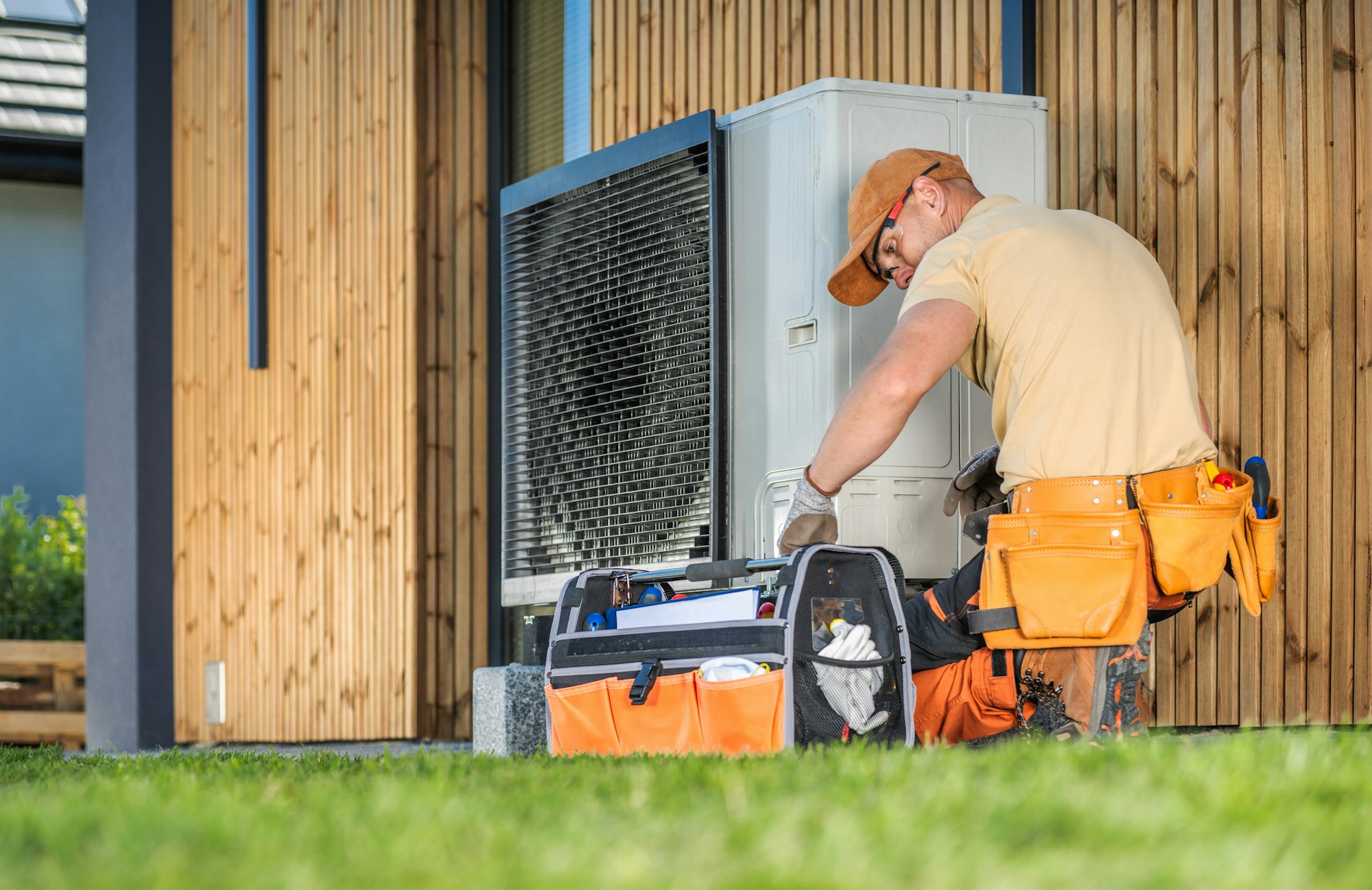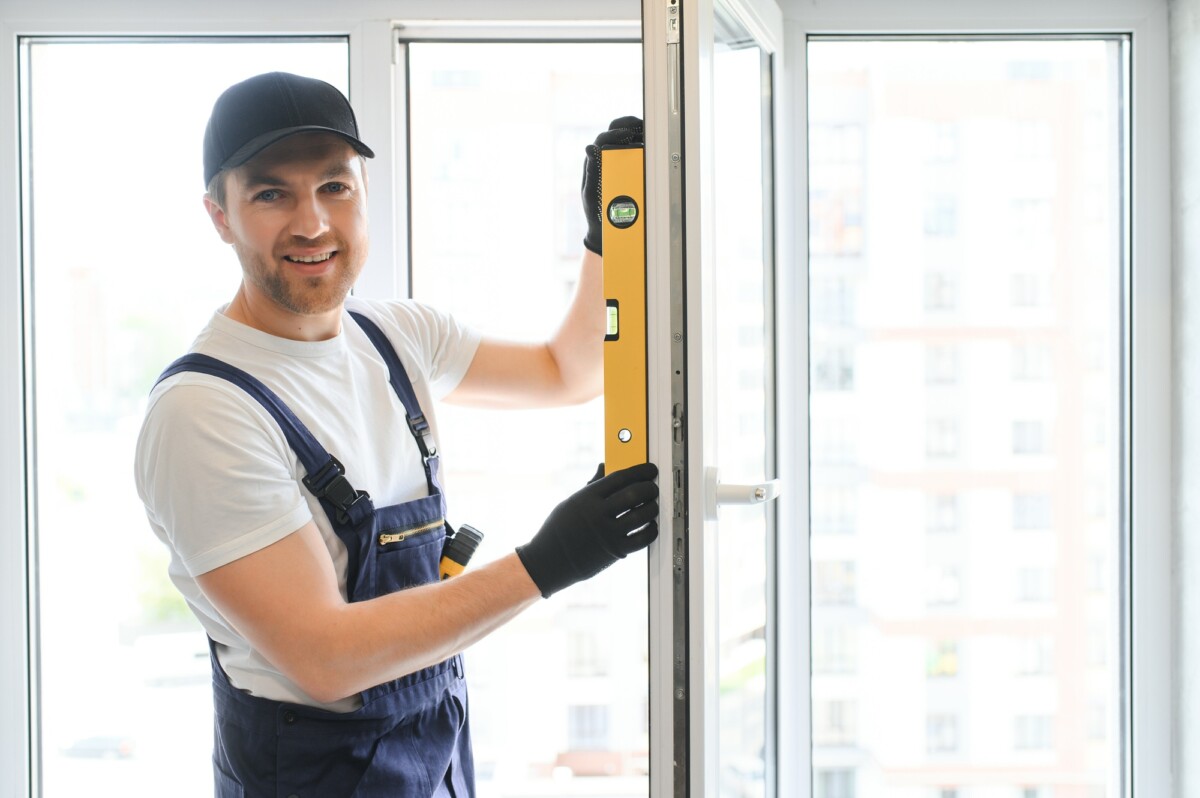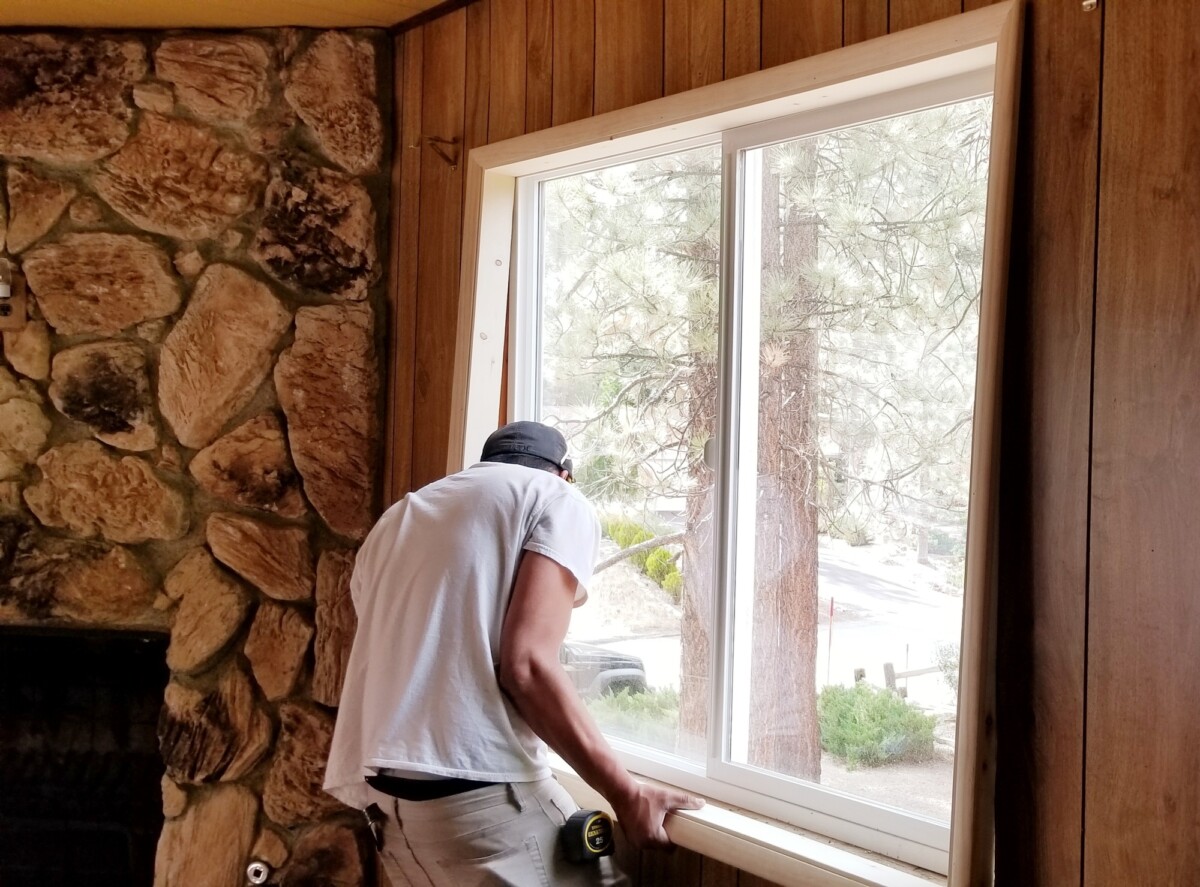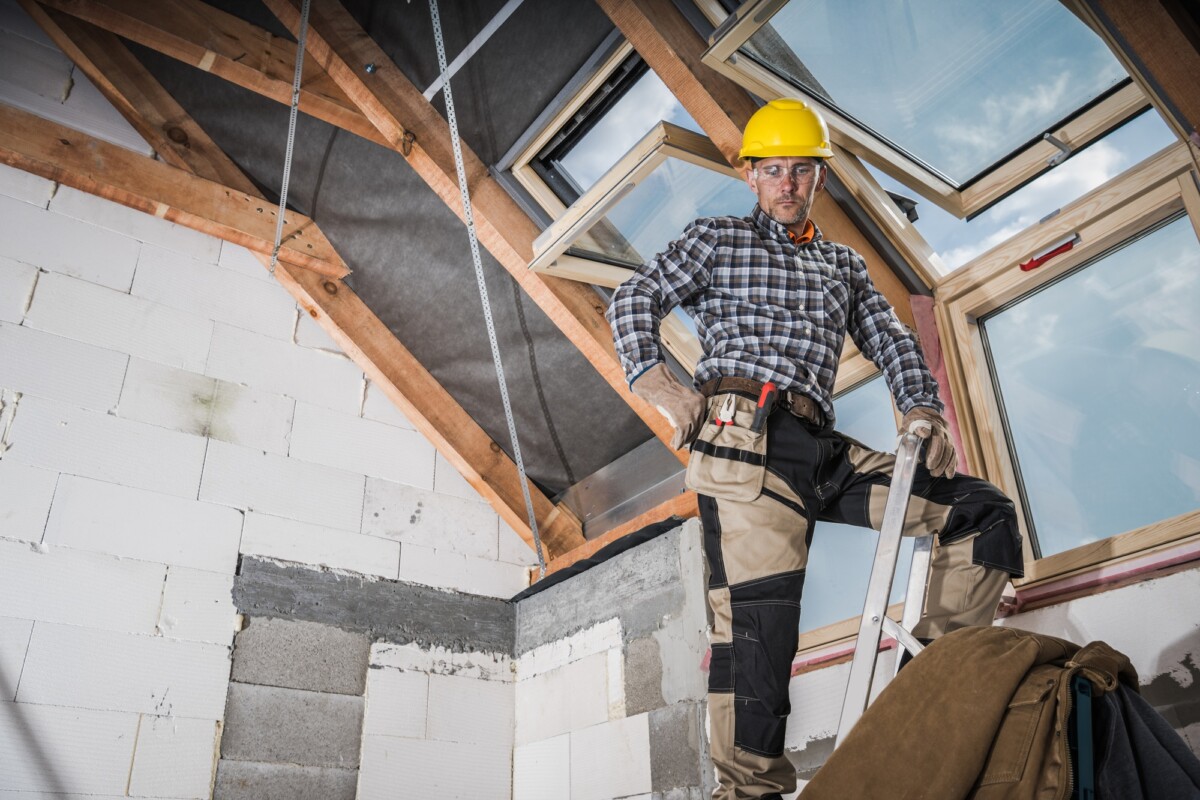Why Is Your HVAC System Blowing Warm Air? Know the Details
Understanding Why Your HVAC System is Blowing Warm Air
Understanding why your HVAC system is blowing warm air is crucial for maintaining a comfortable indoor environment. Several factors can contribute to this issue, ranging from simple thermostat settings to more complex mechanical failures. Identifying the root cause can help you determine whether a quick fix or professional intervention is necessary.
Common reasons for an HVAC system blowing warm air include:
- Incorrect thermostat settings
- Clogged air filters
- Refrigerant leaks
- Faulty compressor
Regular maintenance can prevent these issues and ensure your system operates efficiently. For more information on HVAC maintenance, visit US Remodel. If your HVAC system continues to blow warm air despite troubleshooting, it may be time to consult a professional.
Ignoring the problem can lead to increased energy costs and further damage to your system. For expert assistance, check out the services offered at US Remodel.
Stay cool and comfortable—schedule an HVAC repair with our skilled technicians and get your system back to peak performance today!
Common Causes of Warm Air from HVAC Systems
When an HVAC system is blowing warm air, it can be a frustrating experience for homeowners. Understanding the common causes of this issue is essential for effective troubleshooting. Several factors can contribute to this problem, including thermostat settings, air filter conditions, and ductwork issues.
One primary reason for an HVAC system blowing warm air is an incorrect thermostat setting. If the thermostat is set to ‘heat’ instead of ‘cool,’ the system will naturally blow warm air. Additionally, a malfunctioning thermostat can fail to communicate the desired temperature, leading to inadequate cooling.
Another significant cause is a dirty or clogged air filter. A blocked filter restricts airflow, causing the system to work harder and potentially blow warm air. Regular maintenance, including filter changes, is crucial to ensure optimal performance.
Furthermore, ductwork leaks can also lead to warm air being distributed throughout the home. To summarize, here are some common causes of warm air from HVAC systems:
- Incorrect thermostat settings
- Clogged air filters
- Ductwork leaks
Addressing these issues promptly can help restore comfort in your home. For more information on HVAC maintenance, visit US Remodel.
– Thermostat Settings and Malfunctions
The thermostat is a critical component of your HVAC system. Incorrect settings can lead to the HVAC system blowing warm air instead of the desired cool air. Ensure that your thermostat is set to ‘cool’ mode and that the temperature is lower than the current room temperature.
Common Thermostat Malfunctions
Thermostat malfunctions can also cause your HVAC system to blow warm air. Issues such as dead batteries, faulty wiring, or a malfunctioning sensor can disrupt the system’s ability to regulate temperature effectively. Regular maintenance can help prevent these problems.
Troubleshooting Tips
To troubleshoot thermostat issues, consider the following: – Check and replace batteries if necessary. – Ensure the thermostat is clean and free from dust. – Verify that the wiring is intact and connections are secure.
By addressing these factors, you can help ensure your HVAC system operates efficiently and avoids blowing warm air. For more information on HVAC maintenance, visit US Remodel.
– Clogged Air Filters and Their Impact
Clogged air filters are a common issue that can lead to an HVAC system blowing warm air instead of the desired cool air. When filters become obstructed with dust and debris, airflow is significantly restricted. This not only affects the temperature of the air being circulated but can also lead to increased energy consumption as the system works harder to maintain the set temperature. Regular maintenance of air filters is crucial for optimal HVAC performance.
Homeowners should check and replace filters every one to three months, depending on usage and environmental factors. Neglecting this simple task can result in costly repairs and reduced efficiency, ultimately impacting indoor comfort levels. To prevent your HVAC system from blowing warm air, consider the following tips:
- Inspect filters monthly for dirt accumulation.
- Replace filters as needed to ensure proper airflow.
- Schedule regular professional maintenance to keep your system running efficiently.
For more information on HVAC maintenance, visit US Remodel.
– Refrigerant Issues and Leaks
Refrigerant issues are a common cause of an HVAC system blowing warm air. The refrigerant is essential for the cooling process, absorbing heat from the indoor air and releasing it outside. When there is a leak in the refrigerant lines, the system cannot maintain the necessary pressure, leading to inadequate cooling performance.
Identifying refrigerant leaks can be challenging. Signs of a leak include hissing sounds, ice buildup on the evaporator coils, and a noticeable increase in energy bills. If you suspect a refrigerant leak, it is crucial to contact a professional HVAC technician for an inspection and repair.
To prevent refrigerant issues, regular maintenance is key. Homeowners should consider the following preventive measures:
- Schedule annual HVAC system inspections.
- Ensure proper insulation around refrigerant lines.
- Monitor system performance and address any irregularities promptly.
Troubleshooting Steps for Warm Air Issues
When your HVAC system is blowing warm air instead of cool, it can be frustrating. The first step in troubleshooting this issue is to check your thermostat settings. Ensure that the thermostat is set to ‘cool’ and that the desired temperature is lower than the current room temperature. If the thermostat is malfunctioning, it may need recalibration or replacement.
Next, inspect your air filters. Clogged or dirty filters can restrict airflow, causing the HVAC system to blow warm air. Replace or clean the filters regularly to maintain optimal performance. Additionally, check for any obstructions around the outdoor unit, such as debris or vegetation, which can hinder airflow and efficiency.
Another common cause of warm air issues is refrigerant levels. Low refrigerant can prevent the system from cooling effectively. If you suspect this is the case, it is advisable to contact a professional technician to assess and recharge the refrigerant. Regular maintenance can help prevent this issue from arising in the first place.
Lastly, consider the age and condition of your HVAC system. Older units may struggle to maintain efficiency and may require repairs or replacement. For more detailed guidance on HVAC maintenance and troubleshooting, visit US Remodel for expert advice and resources.
– Checking Thermostat Settings
When experiencing an HVAC system blowing warm air, the first step is to check the thermostat settings. Ensure that the thermostat is set to ‘cool’ mode and that the desired temperature is lower than the current room temperature. This simple adjustment can often resolve the issue without further intervention.
Additionally, verify that the thermostat is functioning correctly. If the display is blank or unresponsive, it may require new batteries or a reset. A malfunctioning thermostat can lead to improper temperature regulation, resulting in warm air being circulated throughout your home.
Lastly, consider the placement of your thermostat. If it is located near heat sources, such as windows or appliances, it may inaccurately read the temperature, causing the HVAC system to blow warm air. For optimal performance, ensure the thermostat is installed in a central location away from direct sunlight or drafts.
– Inspecting Air Filters and Ducts
Inspecting air filters and ducts is crucial when your HVAC system is blowing warm air. Clogged or dirty air filters can restrict airflow, causing the system to work harder and potentially leading to overheating. Regularly checking and replacing air filters can enhance efficiency and prolong the lifespan of your HVAC system.
Ducts also play a significant role in the performance of your HVAC system. Leaks or blockages in the ductwork can result in uneven heating and increased energy costs. It is essential to inspect ducts for any signs of damage or debris accumulation.
To ensure optimal performance, consider the following steps:
- Check air filters monthly and replace them every 1-3 months.
- Inspect ducts for visible damage or disconnections.
- Clean ducts to remove dust and allergens that can affect air quality.
By maintaining clean air filters and inspecting ducts, you can prevent your HVAC system from blowing warm air unnecessarily. For more detailed guidance on HVAC maintenance, visit US Remodel.
– Evaluating Refrigerant Levels
Evaluating refrigerant levels is crucial when your HVAC system is blowing warm air. Insufficient refrigerant can lead to inefficient cooling and increased energy costs.
Regular checks can help identify leaks or depletion, ensuring optimal performance of your system. To assess refrigerant levels, start by inspecting the service ports on your HVAC unit.
Use a pressure gauge to measure the refrigerant pressure against the manufacturer’s specifications. If the pressure is low, it may indicate a leak or the need for a recharge.
Consider the following signs of low refrigerant:
- Increased energy bills
- Ice buildup on the evaporator coils
- Inconsistent cooling throughout your home
If you suspect low refrigerant levels, it is advisable to contact a professional technician for a thorough evaluation and repair. For more information on HVAC maintenance, visit US Remodel.
When to Call a Professional HVAC Technician
When your HVAC system is blowing warm air instead of cool air, it can be a sign of underlying issues that require professional attention. Ignoring these symptoms may lead to more significant problems down the line. Understanding when to call a professional HVAC technician is crucial for maintaining your system’s efficiency and longevity. Here are some indicators that it’s time to seek help: – Inconsistent temperatures throughout your home.
– Unusual noises coming from the unit. – A sudden increase in energy bills. If you notice any of these signs, it’s advisable to consult a professional to diagnose the issue accurately. Additionally, if your HVAC system is blowing warm air consistently, it may indicate a refrigerant leak or a malfunctioning compressor.
These issues can be complex and require specialized tools and knowledge to resolve. Attempting to fix them yourself can lead to further damage and increased repair costs. In conclusion, if your HVAC system is blowing warm air, do not hesitate to reach out to a qualified technician. For more information on HVAC services, visit US Remodel.
Taking prompt action can save you time and money in the long run.
Preventative Maintenance Tips for Your HVAC System
Preventative maintenance is crucial for ensuring your HVAC system operates efficiently. Regular checks can help identify issues before they escalate, such as your HVAC system blowing warm air unexpectedly. Scheduling seasonal inspections with a qualified technician can prevent costly repairs and extend the lifespan of your unit.
One of the simplest yet effective maintenance tasks is changing your air filters regularly. Clogged filters can restrict airflow, leading to your HVAC system blowing warm air instead of cool air. Aim to replace or clean your filters every 1-3 months, especially during peak usage seasons.
Additionally, ensure that your outdoor unit is free from debris. Leaves, dirt, and other obstructions can hinder performance, causing your HVAC system to work harder and potentially blow warm air. Regularly clear the area around your unit to maintain optimal airflow.
Lastly, consider scheduling a professional tune-up at least once a year. This comprehensive service can identify potential issues and ensure your system is running efficiently. For more tips on HVAC maintenance, visit US Remodel.
– Regular Filter Changes
Regular filter changes are crucial for maintaining the efficiency of your HVAC system. When your HVAC system is blowing warm air, it often indicates that the air filter is clogged. A dirty filter restricts airflow, causing the system to work harder and potentially leading to costly repairs. To prevent your HVAC system from blowing warm air, it is recommended to check and replace the air filter every one to three months.
This simple maintenance task can enhance indoor air quality and ensure your system operates at peak performance. Regular filter changes can also extend the lifespan of your HVAC unit. Consider the following tips for effective filter maintenance:
- Check filters monthly, especially during peak usage seasons.
- Use high-efficiency filters to capture more dust and allergens.
- Keep a schedule for regular replacements to avoid forgetting.
By adhering to these practices, you can prevent your HVAC system from blowing warm air and ensure a comfortable living environment. For more information on HVAC maintenance, visit US Remodel.
– Seasonal Inspections and Tune-Ups
Seasonal inspections and tune-ups are essential for maintaining the efficiency of your HVAC system. Regular maintenance helps identify potential issues before they escalate, ensuring that your system does not start blowing warm air unexpectedly. Scheduling these inspections at the beginning of each season can significantly enhance the longevity of your HVAC system.
During a seasonal inspection, technicians will check various components of your HVAC system, including filters, ducts, and refrigerant levels. This proactive approach not only prevents the inconvenience of an HVAC system blowing warm air but also optimizes energy consumption. Consider the following key tasks during your tune-up:
- Replace or clean air filters
- Inspect ductwork for leaks
- Check thermostat settings
- Clean condenser and evaporator coils
- Ensure proper airflow and refrigerant levels
By investing in seasonal inspections, you can ensure your HVAC system operates efficiently year-round.
For more information on HVAC maintenance, visit US Remodel.
– Importance of Professional Cleaning
Maintaining an HVAC system is crucial for ensuring optimal performance. When an HVAC system is blowing warm air, it may indicate underlying issues that require immediate attention. Regular professional cleaning can prevent these problems from escalating, ensuring your system operates efficiently and effectively.
Professional cleaning not only enhances the performance of your HVAC system but also improves indoor air quality. Dust, debris, and allergens can accumulate in the system, leading to poor air circulation and health concerns. By scheduling routine cleanings, you can mitigate these risks and maintain a healthier living environment.
Key benefits of professional HVAC cleaning include:
- Improved energy efficiency
- Extended lifespan of the system
- Reduced risk of breakdowns
- Enhanced comfort levels in your home
In conclusion, if your HVAC system is blowing warm air, it is essential to seek professional cleaning services. This proactive approach will help maintain your system’s efficiency and longevity, ensuring a comfortable and safe indoor atmosphere. For more information on HVAC maintenance, visit US Remodel.
Need HVAC help? Don’t wait—schedule a repair service now and let our experts bring the cool air back to your home!





